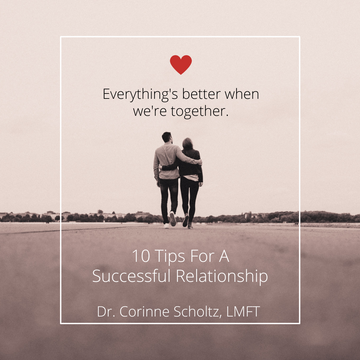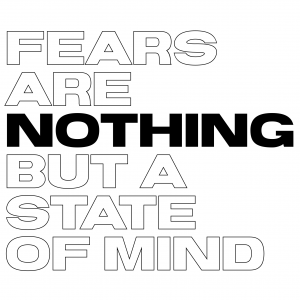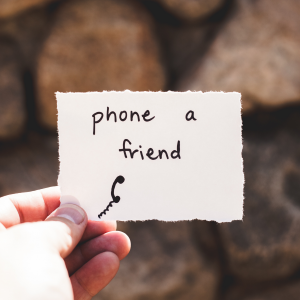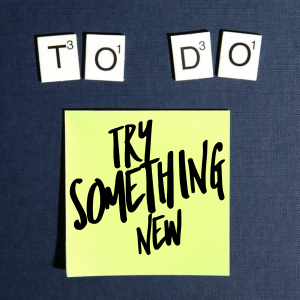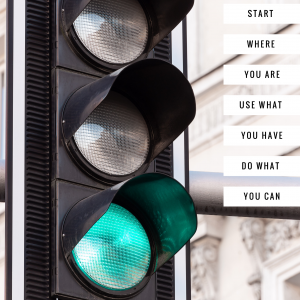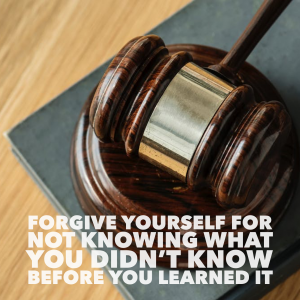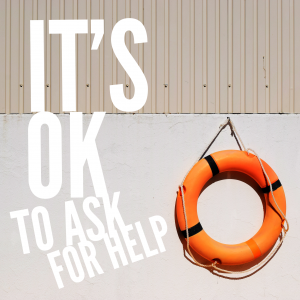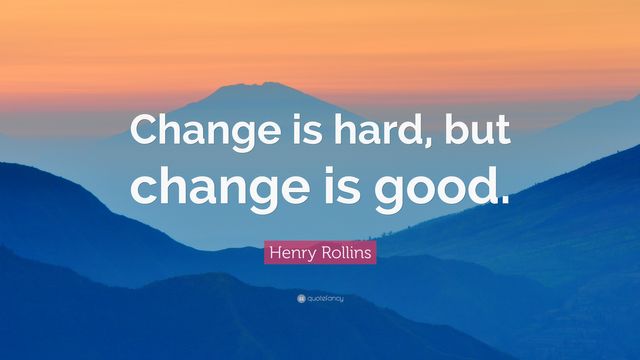Blog
Keep up to date with our news, tips & tools, and latest information!
Money Talks
Dr Corinne Scholtz, LMFT
Navigating Money Conversations with Compassion: How KAP Can Help
Money conversations are often more than just practical discussions—they tend to evoke a range of emotions, some of which run deep. For many of us, money represents security, control, or self-worth, shaped by our family of origin and life experiences. When these emotions collide in a relationship, money discussions can quickly turn into conflict, avoidance, or feelings of disconnect.
If you’ve ever felt that talking about money with your partner leads to tension, it’s likely because there are...
moreFamily Estrangement
Dr. Corinne Scholtz, LMFT
Healing Family Estrangement with Ketamine-Assisted Psychotherapy (KAP)
Family estrangement is one of the hardest things to navigate. It brings up a mix of emotions—grief, confusion, anger, regret, and loss. Whether you’ve distanced yourself from a family member or are struggling with the pain of being estranged, the feelings can be overwhelming.
Ketamine-assisted psychotherapy (KAP) is emerging as a powerful way to help people process these complex emotions. It goes beyond traditional talk therapy, allowing you to explore deeper layers of grief...
moreYour Patterns
Dr. Corinne Scholtz, LMFT
🌿 What if the key to a better relationship lies in understanding your own patterns? 🔑
In my work as a marriage and family therapist, I’ve had the privilege of helping so many couples. What I’ve learned is that real, lasting change doesn’t come from waiting for your partner to change, but from taking a gentle look at your own patterns.
✨ Do you find yourself stuck in the same conversations or arguments?
✨ Are you noticing familiar feelings or triggers coming up over and over again?
It’s so normal to get caught in...
moreEmbracing Change
Dr. Corinne Scholtz
Fall is a season of transition—a time when nature shows us the beauty of change. Just as trees shed their leaves to prepare for renewal, we, too, can use this time to let go of old patterns and embrace new possibilities in our lives and relationships. As a therapist in Fort Lauderdale, I’ve seen firsthand how the themes of fall—reflection, change, and growth—can inspire profound transformation for individuals and couples alike.
Whether you’re navigating...
moreAll Couples Fight
Dr. Corinne Scholtz, LMFT
All Couples Fight – And That’s Okay
It’s easy to think that conflict means something is wrong with your relationship, but here’s the truth: all couples fight. What matters isn’t whether you fight, but how you fight. Conflict can actually be a doorway to deeper understanding if handled with care.
Instead of seeing arguments as something to avoid, try using them as a chance to grow together. Use tools like:
- Active Listening – pause and truly hear your partner.
- Using “I” Statements – express how...
Are you feeling the need to pause?
Dr. Corinne Scholtz, LMFT
Are you feeling the need to pause and find your way back to peace? The October Pathway to Peace retreat is your invitation to step away from the noise and create space for deep healing and renewal. This is more than just time away – it’s an opportunity to reconnect with yourself on a profound level.
Imagine giving yourself the gift of intentional time, surrounded by nature’s serenity at Thermae Retreat, as you experience the power of ketamine-assisted therapy. This retreat is designed to help you release emotional...
moreMarriage Counseling Can Help!
Dr Corinne Scholtz, LMFT
Navigating Love's Challenges: How Marriage Counseling Can Help
Marriage is full of both joys and challenges, and sometimes, couples hit rough patches that feel overwhelming. Whether it’s miscommunication or deeper trust issues, these struggles don’t have to define your relationship. Marriage counseling offers a safe, supportive space to address these challenges with compassion, helping couples reconnect and grow stronger together. Here’s a look at some of the common issues counseling can help resolve.
Common Marriage...
moreWhy Couples Seek Counseling and How It Helps
Dr Corinne Scholtz
Romantic relationships can be rewarding yet challenging, often leading couples to seek counseling. Couples therapy provides a safe space to address common issues like communication, trust, and differing life goals, helping partners reconnect and strengthen their bond.
Common Issues in Marriage
Communication Breakdowns:
Poor communication often leads to frustration and distance. Counseling helps couples express feelings openly and develop listening skills, fostering healthier conversations and preventing...
moreMeaningful Relationships
Dr. Corinne Scholtz, LMFT
In today's fast-paced world, the importance of strong bonds and genuine connections cannot be overstated. Our relationships with family, friends, and partners offer support, belonging, and fulfillment. Individual, couples, marital and family therapy helps to build these connections and enrich our lives.
Meaningful Connections: Quality Over Quantity
In a digital era, it's vital to prioritize quality over quantity in our family and friendship connections. Genuine interactions foster deeper relationships. By engaging in sincere conversations, practicing active listening, and...
moreMarried To, or Dating, A 'Jokester'?
Dr Corinne Scholtz, LMFT
One of the qualities that many women look for in a potential romantic partner is the ability to laugh. It’s a great thing when someone can laugh at themselves and make some truly funny jokes to ensure that anyone around them will also be laughing.
However, there can be a problem if a guy is so into being funny that it’s like he never experiences a serious moment. He can be hot, sexy and everything else that you would ever want in a guy, but if all he does is crack jokes, how can you be certain of how he really feels about you?
First of all, decide if he...
moreMotivation
Dr Corinne Scholtz, LMFT
No matter how many mistakes you make or how slow you progress, you are still way ahead of everyone who isn't trying - Tony Robbins
Ready to take the first step towards positive change and growth?
Schedule a counseling session now with Dr. Corinne Scholtz, and begin your journey towards a happier, healthier life.
moreBody Language!
Dr. Corinne Scholtz, LMFT
Body Language Secrets You Should Know!
Even when you don’t say a word, other people can still learn a lot about what kind of person you are and what you are thinking and feeling. How do other people do this? By studying your body language. The term body language refers to the messages you send out with your body gestures and facial expressions. Some body language experts claim that only about 7% of our messages to other people (especially our spouse, family, and friends) are communicated through the words we speak. The rest of our messages are...
moreHaving Patience
Dr Corinne Scholtz, LMFT
We all know that relationships can be difficult. One of the best methods we have for making every relationship less stressful and more enjoyable is to show a little patience. Patience has been defined as what we lack for the driver in front of us and demand from the driver behind us.
In truth, patience is nothing more than time.
Time before we say something: Think of a time when someone was not patient with you when you needed them to be. Think of how you felt. Think of how deeply you might have been hurt. The next time you find yourself losing...
Emotional Triggers
Dr. Corinne Scholtz, LMFT
We are all human. We all come from somewhere. Our pasts are a historical record of wonderful and painful moments that have happened to us. We all come wired with soundtracks from the past. And even the healthiest among us, are not immune from being triggered by other people.
Relationships can be a harmonious adventure or a disaster just waiting to happen. Two people sharing different perspectives, lifestyles, and experiences can be a breeding ground for emotional triggers. And it takes a lot of work and commitment to manage our reactions to the people we love, strangers we meet, and...
moreListening to Our Partners
Dr. Corinne Scholtz, LMFT
How many times have you found your attention wandering when listening to your husband or wife?
How many times have you nodded your head in understanding even though you may have missed the main point?
There is nothing wrong or irregular in this behavior. It happens to all of us, all the time. We may hear what another person is saying but unless we listen we can't comprehend what he or she is saying!
...
moreWhy Is Love Important?
Dr. Corinne Scholtz, LMFT
Why Is Love Important?
So often we spend most of our time taking care of our physical needs. We make sure our bodies are fed, cleaned, clothed, exercised and rested. We also make sure intellectual stimulation and entertainment is a priority. Yet we also overlook the most important need -- love.
Of course, as a society, love is not overlooked. Popular media constantly places great emphasis on what we need to do and how we should look to attract "love". But being loved is not as powerful an emotional need as that desire to love someone else. The need to love...
moreBut I didn't mean that!
Dr. Corinne Scholtz
But I Didn’t Mean That!
Communication is the key to any relationship. With bad communication, problems crop up at unexpected places. This is a classical case. Sometimes, we say things we don’t mean without even realizing it. We continue to go about our day, unaware of the fact that we hurt someone's feelings. It is important to let someone know when they hurt your feelings with their words. They will learn your sensitivities, and be able to explain what they actually meant.
...
moreAre you in love, or, obsessed?
Dr. Corinne Scholtz, LMFT
Are You In Love, Or , Obsessed?
It should be obvious that there are basic differences between being in love or just obsessed. Sadly, that’s not always the case. Many people find themselves in relationships that they feel are loving when, in reality, it’s an unhealthy obsession.
Even when these people are faced with the facts, they often refuse to admit that they’re more obsessed than in love. In fact, you may be one of those people who is obsessed, rather than in love. So if you haven’t gone completely round the bend, following are...
moreCouples Communication
Dr. Corinne Scholtz, LMFT
A Good Communication Technique To Try For Couples
Human beings are social beings and we interact with people every day of our life. Often, our happiness depends a great deal on how the interactions with each person turn out. This is especially true of those whom we care about e.g. in close friendships as well as in marriage. However, because each personality we deal with is unique and presents its own challenges, managing the myriad of relationships requires us to consciously observe the process and impact of our interactions so...
more10 Tips
Dr. Corinne Scholtz
10 Tips For a Successful Relationship from a couples counselor!
What's the key to a successful relationship? Some say that truly is the “million-dollar” question. Sometimes it's just the simple things that we easily forget or think are unimportant that hold the key to a healthy and happy relationship. Read through the helpful tips below on how to make your relationship go the distance. These tips are directly related to couples counseling sessions and reflect real life solutions for many of the couples I've worked with in therapy....
more7 Ways To Improve Your Relationship
Dr. Corinne Scholtz, LMFT
Great relationships don’t just happen, they require work from both ends. Here are some tips to get started based on years of counseling with individuals and couples! Even one person taking steps to change will affect the relationship dynamic. Want to work together to improve your relationship? Contact us for a free consultation to see how we can best help you flourish in 2023.
1. Take Responsibility for Yourself. This is the most important choice you can make to improve your relationship. This means that you learn how to take responsibility for your own feelings...
moreA Strong Marriage
Getting married is a big step and many couples go into their marriage without having prepared for the problems and issues they are bound to face. It is important to enter a marriage with the skills necessary to sustain it for years to come. The Center for Connected Living now offers premarital counseling for couples who are about to embark on the greatest journey of their lives.
Premarital counseling offers couples the opportunity to learn and develop the skills they need to make it...
moreMen & Feelings?
Dr. Corinne Scholtz, LMFT
Pre Marriage Counseling
Dr. Corinne Scholtz, LMFT
If you have been married for years, or are soon to be newlyweds, have you ever thought about coming to The Center of Connected Living to talk with our marriage counseling therapist, Dr. Corinne Scholtz? There are many different reasons a couple could benefit from our therapist in Fort Lauderdale, Florida 33301; we are here to give you these reasons! Let’s get started.
Unfortunately, no marriage is immune to divorce and it is your job as a couple to talk and work the issues out for yourselves, and if you aren’t sure how to do that, premarital...
more














